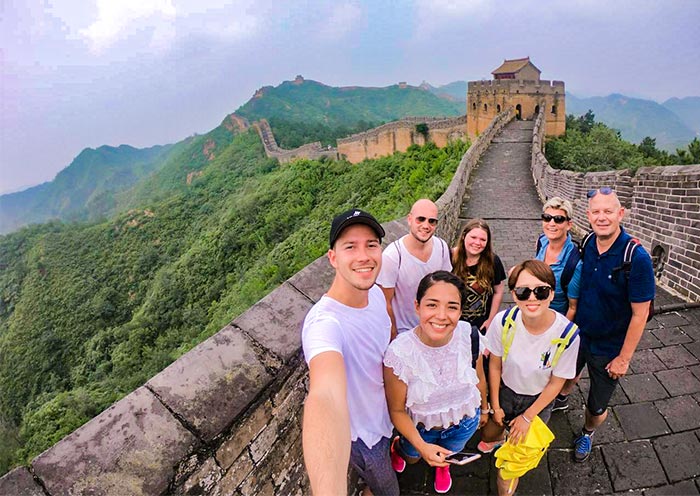20 Pro Pieces Of Advice To Explore Diverse Chinese Dishes
Wiki Article
Explore Regional Cuisines Of China Top 10 Suggestions
1. Be familiar with the Eight Culinary traditionsTip : Familiarize youself with the eight major Chinese dishes : Sichuan Cantonese Shandong Jiangsu Fujian Hunan Anhui Zhejiang. Each cuisine is distinct in its food items, tastes and methods.
Pro: Helps you plan your dining experiences based on your taste preferences.
Con: It's difficult to remember the specifics of each dish.
2. Accept local specialties
Try to sample the local cuisine, be it Peking Duck, Xiaolongbao, or Hot Pot in Chengdu.
Pros: The experience will be authentic and rich in culture.
Cons: You might be limited to your food options when you are in a particular region.
3. Be aware of regional flavors
Tip Advice Sichuan food can be spicy and painful. Cantonese dishes are light, fresh and sweet. Jiangsu is delicate and sweet. Select dishes according to the tolerance to spice and your preferences.
It's best to avoid ordering food that isn't your tastes.
Cons: Certain flavors could require some experimentation and a cultivated taste.
4. Explore Street Food
Be adventurous and try local snacks. Try local snacks.
Pro: Street food provides an affordable and convenient way to sample local cuisine. It also offers an insight into the everyday life of the locals.
Con: Hygiene concerns can be present in certain instances. Choose vendors that do lots of business.
5. Learn Basic Dining Etiquette
Tip - Understand Chinese eating traditions, like sharing with family members and avoid placing chopsticks vertically into rice.
Pro: Represents respect for local traditions and enriches your dining experience.
Cons: It takes time to adapt and learn unfamiliar etiquette.
6. Ask locals for recommendations.
TIP: Locals usually know the best restaurants and dishes in their area. Do not be afraid to seek help.
It can help you avoid tourist traps and still uncover hidden treasures.
Con: Communication could be difficult because of the language barrier.
7. Be Open to Unfamiliar Ingredients
Tip: Regional cuisines could feature unusual ingredients, like bamboo shoots, lotus root, or smelly tofu. Explore new food items with a sense of curiosity.
Pro: You'll be able to appreciate Chinese dishes and expand your palate.
Con: Some meals may not match your tastes or dietary preferences.
8. Accommodate Dietary Restrictions
Learn Mandarin phrases that are used to express preferences and allergies.
Pro: Customized dining experience to suit your requirements.
Con: There may be limited choices for those who have dietary restrictions specific to their needs.
9. Mix regional drinks with your food.
Drink local beverages like tea from Fujian and baijiu north China.
Pro: It adds flavor and enhances dining experiences.
Con Contra: Strong flavors like baijiu might not be appealing to everyone.
10. Avoid Overordering
A tip Recommendation Chinese dishes are served in a family-style manner. So order conservatively. If you need more, add it.
Benefits: You'll be able to try many dishes and don't throw away food.
Con: You may be tempted to order too much due to the wide variety.
The Benefits of Exploring Regional Cuisines In China
Enjoy a wide variety of flavors and techniques, as well as the ingredients.
Cultural Insight: Increasing your understanding of regional traditions and identities.
Budget-friendly: There are many local snacks and dishes that are delicious to eat.
Memorable Experiences: Savouring famous dishes from their country of origin creates lasting memories.
Pros and Cons of Exploring Regional Cuisines in China
Hygiene Issues: Some small eateries or street food might not be up to international standards for cleanliness.
Language Barriers. Menus and even the descriptions of products are accessible in Mandarin.
People who aren't familiar with certain ingredients may have difficulty with certain tastes or textures.
In certain areas certain areas, strict vegetarians, those who suffer from food allergies, as well as vegans can have difficulties.
If you follow these guidelines and staying adventurous and adventurous, you will be able to enjoy the wide and delicious array of Chinese regional cuisines, while overcoming any obstacles along the way! Take a look at the top check out this iconic site for more advice including a wonderful landscape painting lijiang river, shopping in xi an, shopping in kashgar, eating in guilin, eating in taiyuan, shopping in macau, shopping in xi an, entertainment in beijing, popular beijing night markets, eating in fuzhou and more.

Top 10 Tips To Follow When Visiting Temples That Are Famous In China
1. Be respectful of the rules and customs of your temple. It is important to be aware of these rules, particularly when entering sacred areas.
Pro: Shows respect for local traditions and sacred spaces.
Con: It's difficult to be able to comprehend the rules of temples that have complex rituals.
2. Be Respectful and Quiet
Tips: Maintain a calm demeanor by keeping quiet during ceremonies or in the temple. Do not laugh or speak loudly.
Pro: Creates a peaceful ambience for worshippers and displays respect for.
Con: You might feel awkward in the silence if unfamiliar with customs or surroundings.
3. Dress kindly
Be careful not to expose your clothing. Wear long skirts, pants or dresses to show respect. Some temples provide wraps or scarfs to wrap arms.
Pro: Shows respect for the sacred area and the people who worship there.
Con: It may require extra planning or an outfit if you're visiting on a day that is hot.
4. Offers Ritual
Follow locals' lead if you are planning to make offerings of incense fruit, incense or other offerings.
Pro: It will demonstrate that you respect the customs and traditions.
Cons: Participating in the ritual can be uncomfortable if you don't understand it.
5. Do not interrupt prayer or meditation.
Do not interrupt worshipers when they're praying or meditating. Avoid taking pictures or engaging in conversation while others are engaged in spiritual practice.
Pro: Represents respect for culture, and creates an atmosphere of reverence and peace.
Con: Although you may be tempted by the idea of recording moments, it can seem unsettling.
6. Participate in the Lighting of Incense
Tips: Chinese temples have a ritual of lighting incense. Incense is lit to show respect for the gods. Hold the incense and bow a little as you offer it to the gods.
Pro: Shows that you are active in temple practices and respect the tradition.
Con: Incense may not be a common experience for everyone who travels.
7. Avoid touching sacred statues, Objects or Items
Tip: Never touch any sacred objects, like statues or relics.
Pros: Keeps the reverence for the temple.
Con: It can be difficult to determine which temple boundaries lie.
8. Be aware of the Hierarchy in Temples
Tips - In certain temples, there are several levels of sanctity. Be aware of where you go. Don't walk front sacred statues or altars.
Pros: Maintains the decorum and respect for the temple, demonstrating that you are conscious of the practices of the temple.
Con: The hierarchy might not always be obvious, requiring extra effort to comprehend the acceptable standards.
9. Keep Offerings Humble
Tip: If you are bringing offerings (flowers or fruits, as well as money), make sure they are in a modest manner and follow the local customs. Gifts that are expensive or extravagant could be considered inappropriate.
Pro: Shows humility and is in line with the local culture.
Cons: If you don't have local advice, you may not know what type of deal is the best.
10. Take Part in Temple Events if Invited
Tips: Some temples host events like prayers, ceremonies, or celebrations on certain days. If you are invited participate, make sure you are respectful and follow the crowd.
Pros: You'll be more involved with the temple and the local society.
Con: You may be uncomfortable or uncomfortable If you're not familiar with the ritual.
There are numerous benefits of performing rituals in temples.
Cultural Immersion - Taking part in rituals can help you learn about the culture and traditions in China.
Respectful interaction: Interacting with temple staff and other locals in a respectful way will help to build positive relationships.
Personal Growth: Participating in religious or spiritual practices can be a meaningful and enriching experience.
Participating in the temple rituals will provide you with a lasting memory.
The negatives of keeping rituals in Temples
Unfamiliarity. For those who are first-time visitors, it is possible to encounter a jarring ritual, resulting in a feeling of discomfort or omissions.
Cultural mistakes if not done correctly it could cause offence or misunderstandings.
Language Barriers - You may not be able to comprehend the meaning behind the rituals or instructions due to a language barrier.
Physical discomfort Certain rituals may be physically challenging, such as standing or bowing.
Follow these tips to ensure a memorable pleasant, respectful and enjoyable visit to China’s most famous temples. Take part in the spiritual rituals of the locals without being offended. Follow the best discover why this place is a favorite for more info including the song of everlasting sorrow the famous long narrative poem, guilin travel tips, chaotianmen dock%EF%BC%8C a major water transportation hub in chongqing, shopping in nanjing, shenzhen golf club, biking tours, chinese wood carving originated in neolithic period, four great classical novels.html, chinese vegetarian food a vegetarians guide in china, jiuzhaigou and more.
